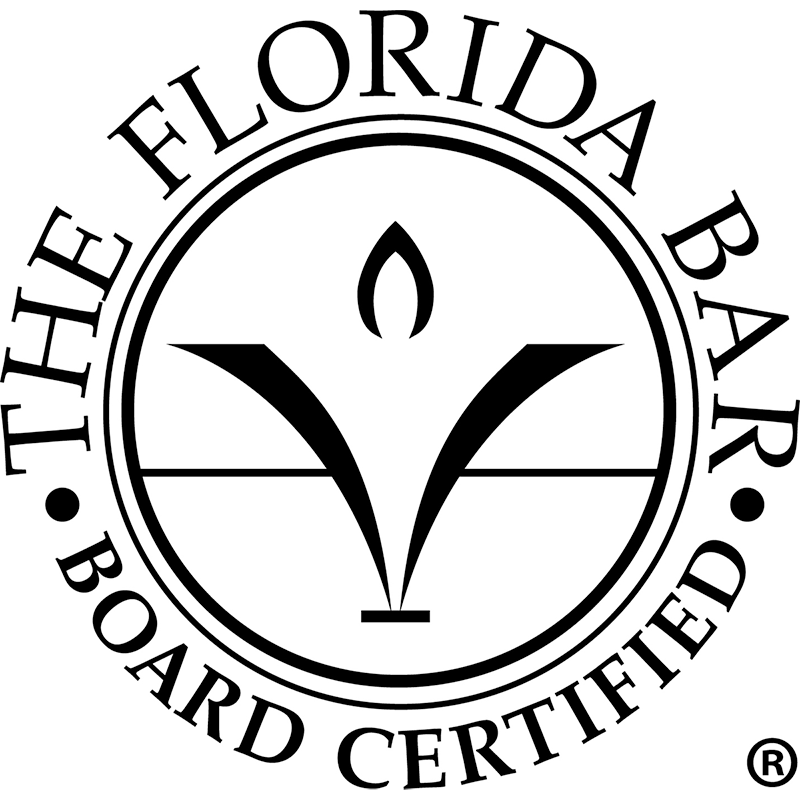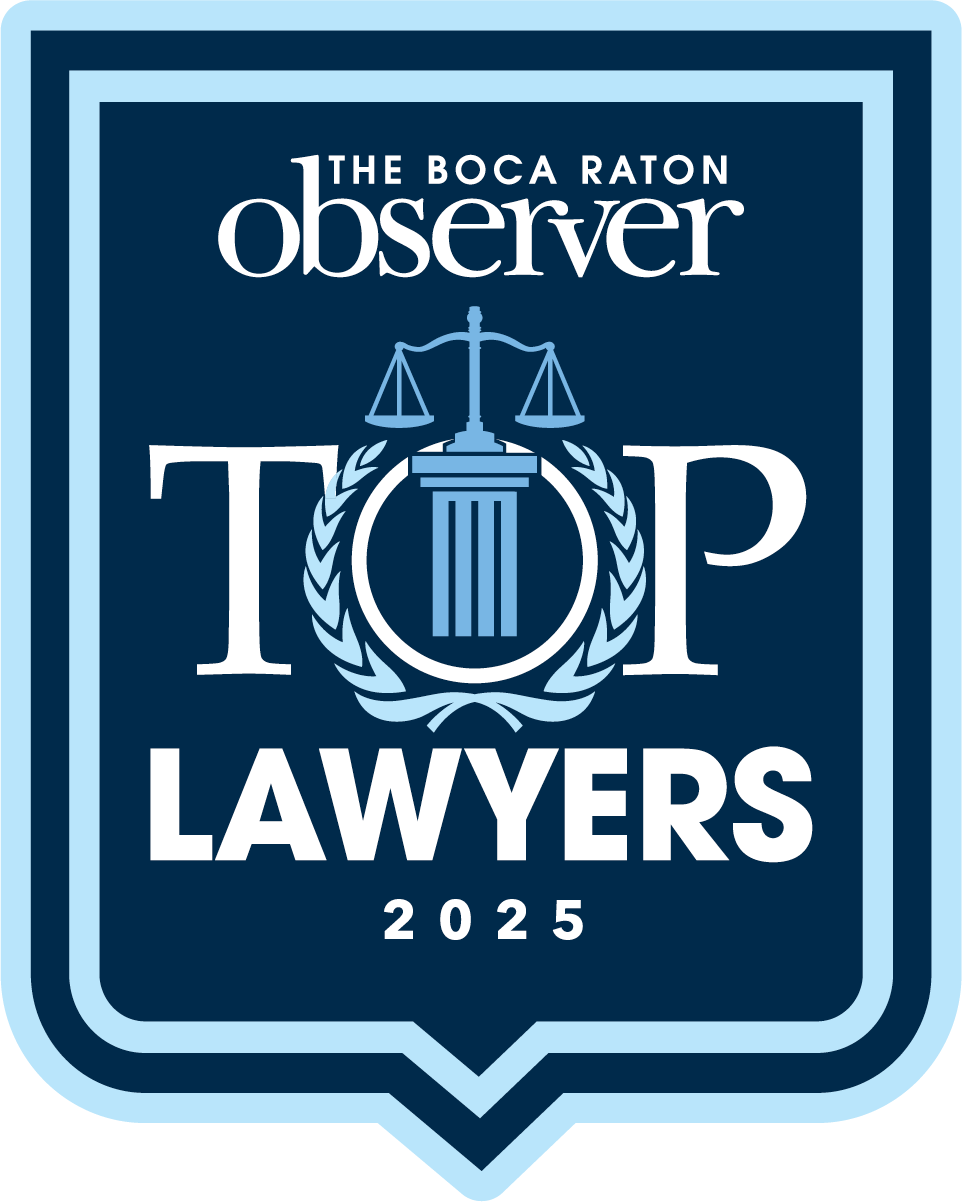
The adoption matching process connects birth mothers with prospective adoptive families through careful consideration of preferences, values, and circumstances. This complex journey involves multiple steps and legal requirements that vary by state.
In Florida, specific regulations govern how matches occur and what documentation is required. We at Juliana Gaita, P.A. guide families through each stage of this life-changing process.
How Birth Mothers and Adoptive Families Connect
The Initial Connection Process
Birth mothers and adoptive families connect through three primary pathways in Florida. Agency-facilitated matches account for approximately 60% of connections, where licensed agencies present adoptive family profiles to birth mothers based on her stated preferences. Self-matches through online platforms like AdoptUSKids represent about 25% of connections, allowing birth mothers to browse family profiles directly. Attorney-facilitated introductions make up the remaining 15%, where legal professionals coordinate meetings between parties after initial screening.
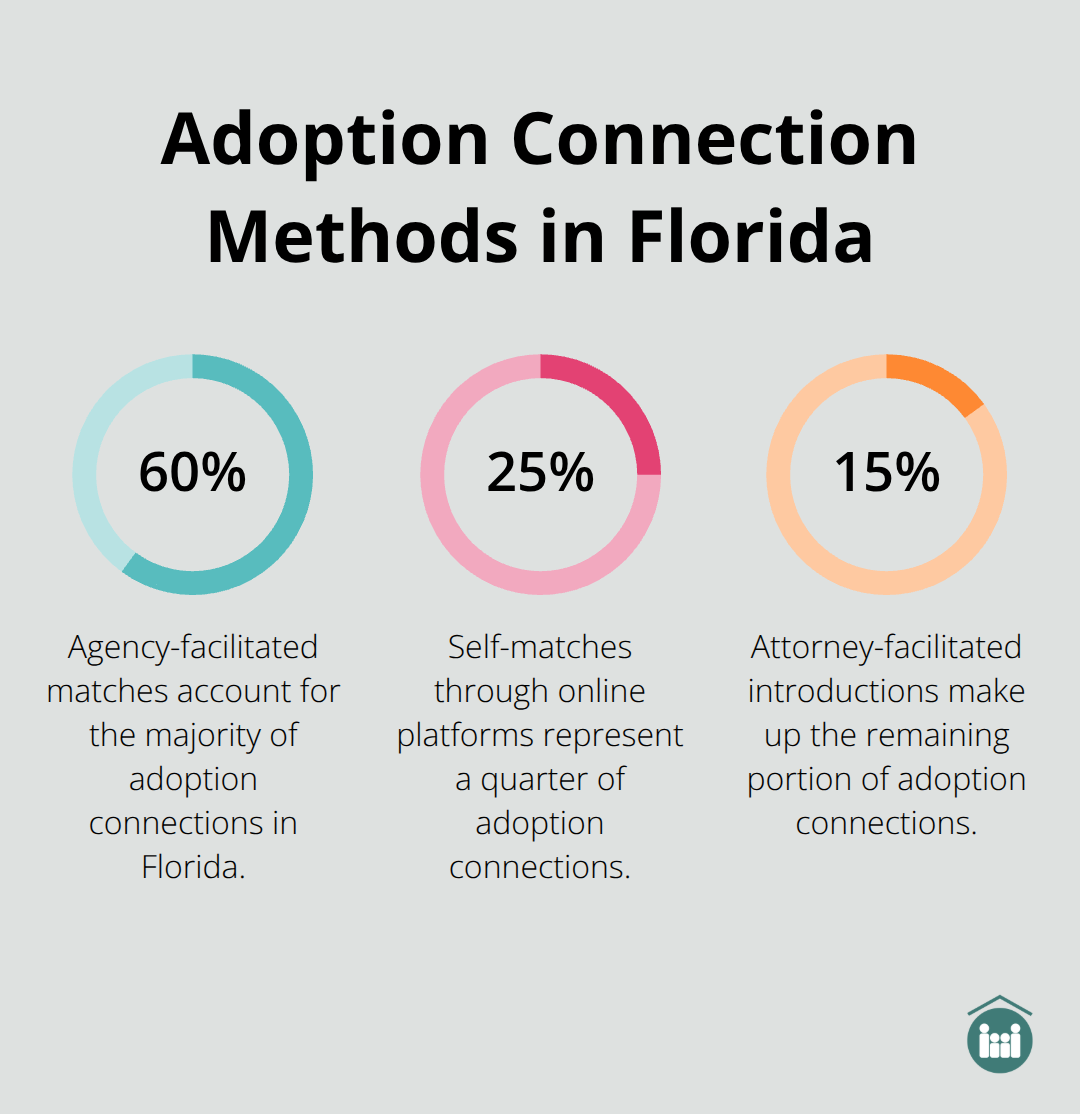
Most successful connections happen within the first 30 days of active search efforts. Birth mothers typically review 8-12 family profiles before they select one that aligns with their vision for their child’s future. The average time from initial contact to first meeting ranges from 5-10 days, depending on geographic proximity and schedule availability.
Agency and Attorney Coordination
Licensed adoption agencies maintain databases of approved families and handle initial screenings to match preferences. They verify that adoptive families have completed required home studies and background checks before they present profiles to birth mothers. Agencies also facilitate communication protocols and schedule meetings in neutral, comfortable settings.
Adoption attorneys focus on legal compliance while they coordinate matches. They verify pregnancy status, review medical records, and handle interstate compact requirements when birth mothers and adoptive families live in different states. Attorneys also draft communication agreements that protect both parties’ privacy while they allow meaningful connection.
Meeting and Decision Timeline
First meetings between birth mothers and adoptive families typically last 20-30 minutes and occur around the second trimester of pregnancy. Successful matches often require 2-3 meetings before both parties feel confident they want to move forward. The decision period usually spans 1-2 weeks after the final meeting (this allows time for reflection without prolonged uncertainty).
Florida law requires a 48-hour wait period after birth before consent documents can be signed, which provides additional time for final consideration. During this period, adoptive families often stay nearby but respect the birth mother’s space and medical care needs. The overall private adoption process typically takes 12 to 18 months from start to finish.
Communication Protocols and Privacy
Agencies and attorneys establish clear communication guidelines that protect personal information while they foster meaningful connections. Birth mothers receive adoptive family contact information gradually (starting with first names and general location details). Full contact information exchanges typically occur only after both parties express mutual interest in proceeding.
These structured communication protocols help prevent overwhelming situations and maintain professional boundaries throughout the process. The next phase involves understanding how agencies and attorneys facilitate these connections while they navigate complex legal requirements.
Factors That Influence Successful Matches
Birth Mother Decision Criteria
Birth mothers prioritize three main factors when they select adoptive families, based on data from Florida adoption agencies. Religious alignment matters most to 78% of birth mothers, followed by educational background at 65%, and family lifestyle preferences at 52%. Birth mothers typically spend 15-20 minutes as they review each family profile, and they focus heavily on photos that show genuine family interactions rather than staged portraits. They reject profiles within the first 30 seconds if core values don’t align with their vision for their child’s future.
Income requirements vary dramatically among birth mothers, but 85% prefer families who earn above $75,000 annually according to recent Florida adoption statistics. Geographic proximity influences 40% of birth mothers, who want adoptive families within a reasonable distance for potential future contact. Age preferences lean toward couples between 28-40 years old, though single parents and older couples succeed when their profiles demonstrate strong support systems and financial stability.
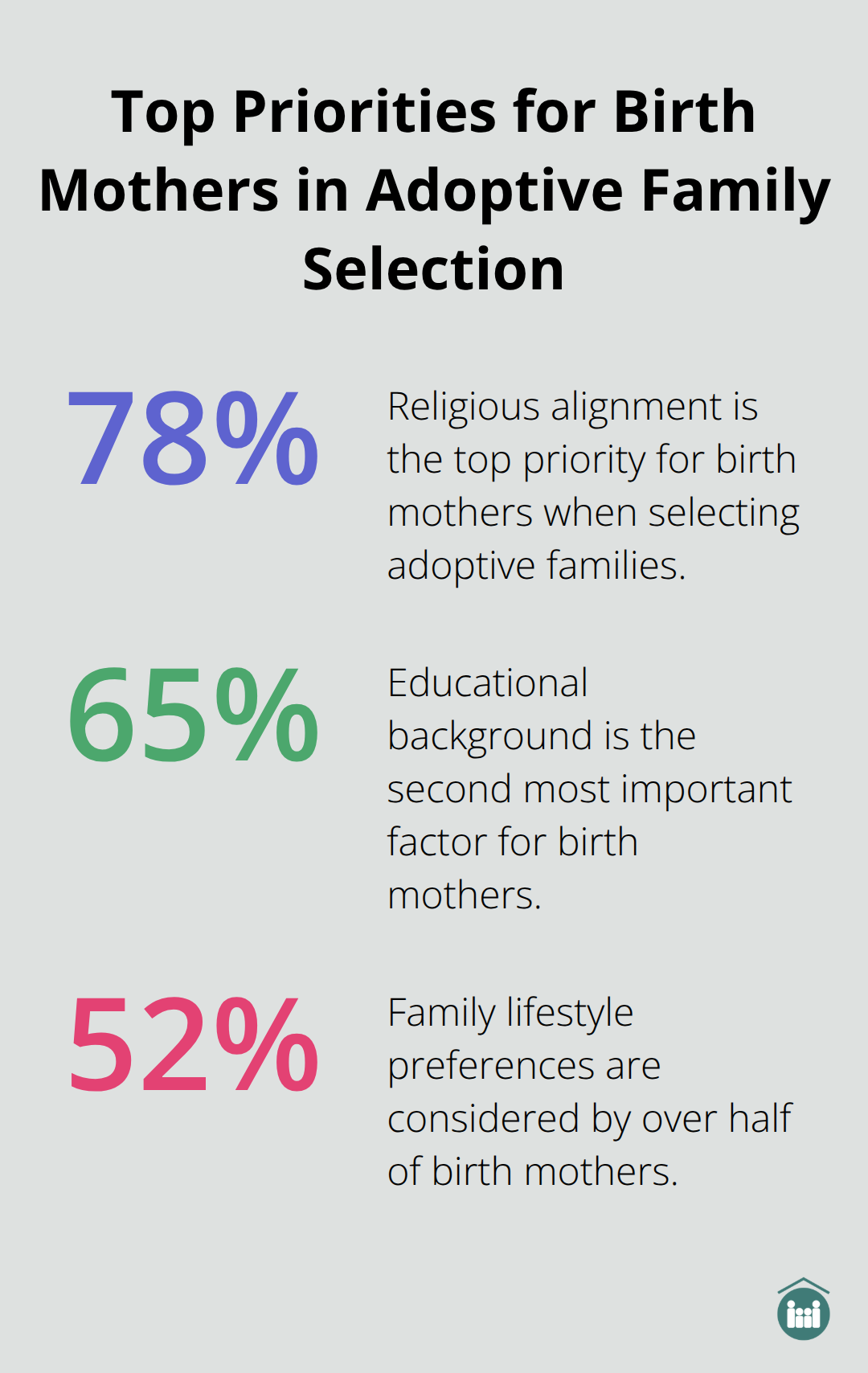
Profile Elements That Generate Responses
Successful adoptive family profiles include 8-12 high-quality photos that show daily life moments rather than professional headshots. Families who mention specific philosophies about children, community involvement, and extended family relationships receive 60% more inquiries than generic profiles. The most effective profiles answer three questions directly: how you handle challenges, what traditions you’ll share, and why adoption feels right for your family.
Written portions should stay between 300-500 words total, as longer profiles lose reader attention according to AdoptUSKids data. Families who mention their adoption budget transparency and willingness to maintain birth family connections see higher match rates. Profiles that mention pets, hobbies, and neighborhood details create emotional connections that generic descriptions cannot achieve.
Geographic and Cultural Considerations
Florida’s diverse population creates unique cultural considerations that affect success rates. Hispanic birth mothers comprise 35% of Florida adoption situations and often prefer bilingual families or those with cultural appreciation. Interstate matches add 6-8 weeks to the process due to Interstate Compact requirements (which makes local matches more appealing to birth mothers who seek quick decisions).
Cultural food traditions, holiday celebrations, and language preservation rank high among birth mothers from specific ethnic backgrounds. Adoptive families who demonstrate genuine cultural competency rather than surface-level appreciation see better outcomes. Rural versus urban preferences split fairly evenly, but families must prove they understand the birth mother’s background environment to build trust during the selection process.
These matching factors work hand-in-hand with Florida’s specific legal requirements that govern every adoption. The state mandates particular documentation and procedures that both parties must complete before any adoption can proceed through the courts.
Legal Requirements and Documentation in Florida
Mandatory Consent Forms and Paperwork
Florida requires birth mothers to sign consent forms no earlier than 48 hours after birth. These documents must include specific language that Florida Statute 63.082 mandates. The consent form becomes irrevocable after the birth mother signs it (unless fraud or duress can be proven in court). Birth fathers must receive formal notice through the Florida Putative Father Registry or direct service, and they have 30 days to respond or forfeit their parental rights.
Adoptive families need a completed home study from a licensed agency, which costs between $1,200-$2,500 and takes 6-8 weeks to complete. This study includes criminal background checks through both state and federal databases, financial verification that shows stable income for at least two years, and medical clearances from licensed physicians. The Interstate Compact on the Placement of Children adds extra paperwork when birth mothers and adoptive families live in different states (this requires approval from both state ICPC offices before placement can occur).
Background Check Requirements
Florida law mandates comprehensive background screenings for all prospective adoptive parents. State and federal criminal history checks must show no disqualifying offenses within the past five years. Child abuse registry clearances from every state where the family has lived confirm no history of child maltreatment. Financial documentation must demonstrate household income stability and debt-to-income ratios below 40%.
Medical examinations verify that adoptive parents can physically and mentally care for a child long-term. Licensed physicians must complete standardized forms that address chronic conditions, mental health history, and life expectancy projections. These medical clearances remain valid for one year from the examination date.
Court Process and Final Approval
Florida adoption cases go before a circuit court judge who reviews all documentation before final approval. The court hearing typically occurs 90-120 days after placement, and both adoptive parents must appear in person unless they live out of state. Judges review the completed home study, consent forms, background check results, and a post-placement report from the supervising agency.
The adoption decree becomes final immediately upon the judge’s signature. Amended birth certificates issue within 2-3 weeks through the Florida Bureau of Vital Statistics. Post-placement supervision lasts a minimum of 90 days and requires monthly visits from licensed social workers who document the child’s adjustment and family integration. Florida courts deny less than 2% of adoption petitions when proper legal procedures are followed and all documentation is complete.
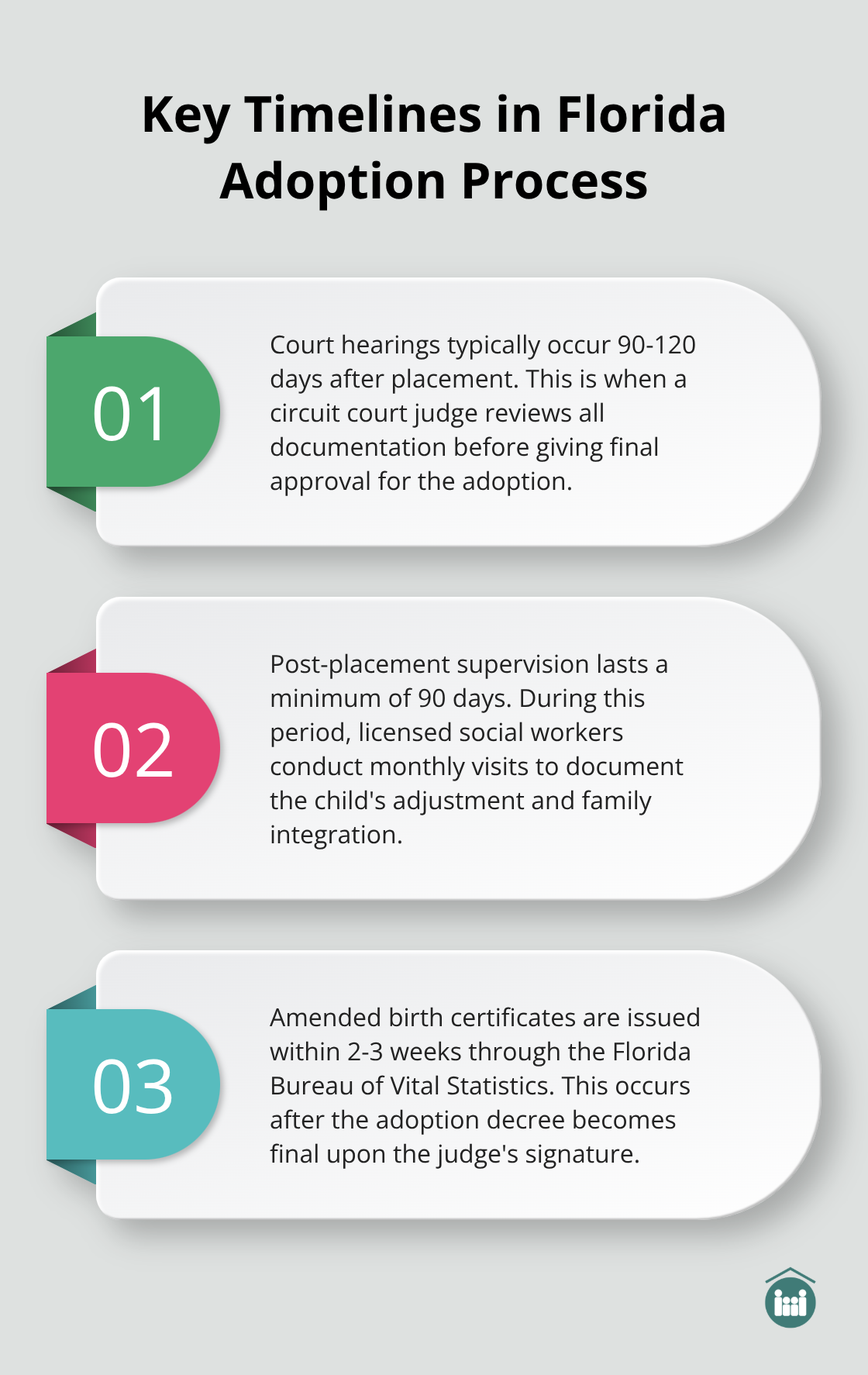
Final Thoughts
The adoption matching process demands thorough preparation, patience, and professional legal guidance to achieve successful outcomes. Birth mothers typically review 8-12 family profiles before they make their selection, which means adoptive families must create compelling presentations that authentically represent their values and lifestyle. Successful matches occur when both parties align on religious beliefs, educational priorities, and long-term vision for the child’s future.
Legal compliance forms the foundation of every successful adoption in Florida. The 48-hour consent wait period, mandatory background checks, and court approval process protect all parties while they create permanent family bonds. Families who complete their home studies early and maintain current documentation move through the process more efficiently than those who delay these requirements (this preparation often determines timeline success).
We at Juliana Gaita, P.A. guide prospective adoptive families through each stage of Florida’s adoption requirements. Our legal team helps families prepare proper documentation, navigate interstate compact rules when necessary, and represent their interests during court proceedings. Contact our Boca Raton adoption attorneys to discuss your family’s adoption goals and learn how we can support your journey toward the family you envision.


